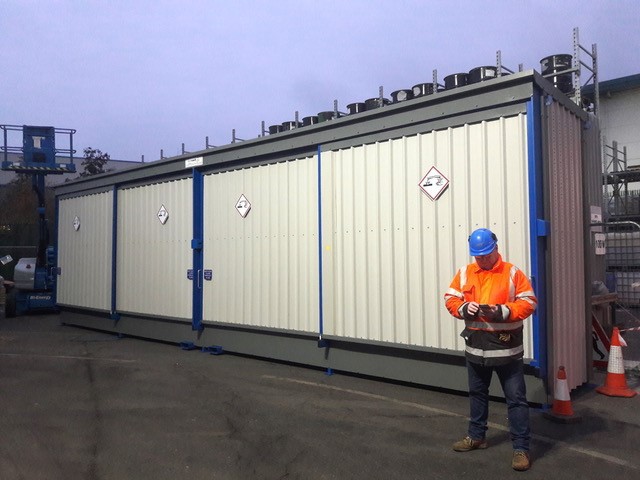

|
Edward Lowton
Editor |


|
| Home> | Health, Safety & Welfare | >Safety Management | >Are your corrosives stored correctly? |
| Home> | Handling and Storing | >Storage and containers | >Are your corrosives stored correctly? |
Are your corrosives stored correctly?
22 May 2019
Chemstore is encouraging businesses large and small to review how they store corrosive substances to ensure that they are keeping staff and members of the public safe.

The advice comes in light of an increasing number of public acid attacks which serve as a reminder of the devastating impact corrosive substances can have on human health.
As news reports have highlighted, corrosives and their vapours can cause devastating damage to the skin, eyes, respiratory tract and digestive tract and some corrosives can even eat through metal. Controlling access to these substances and storing them correctly in line with the Control of Substances Hazardous to Health Regulations (COSHH) 2002 is therefore essential but Chemstore finds it is a hazard that is easily overlooked, often because people don’t realise they are dealing with corrosive substances in the first place.
Mike Brodie, Chemstore UK managing director ,explains: “There is a common myth as quoted by the HSE in its brief guide to COSHH that companies don’t think they have any hazardous substances in their workplace when on closer inspection this is rarely the case.
“There is an increasing drive to control public access to corrosives with retailers becoming more vigilant and measures such as banning cash purchases of acid being proposed but there has been less attention given to the fact that corrosive substances are still easily accessible in many workplaces. Consequently we are urging companies to consider whether this is an area that needs review.”
Brodie adds: “Another common myth is that people think that because they have been supplied with a substance it must therefore be safe. This is simply not true yet this attitude means that many companies and consequently workers remain oblivious to the hazards of some of the substances they work with. At the most extreme we have seen hydrofluoric acid which is used for glass etching, metal cleaning and electronics manufacturing and can be fatal stored in boxes on factory floors.”
The good news is that meeting your obligations in this area is often easier than people think. Chemstore has come up with a simple checklist which can be downloaded at :www.chemstore.co.uk/corrosives-handling-and-storage/ to help businesses review their procedures and signpost them in the right direction for further information.
- Free chemical storage survey
- Safe storage of lithium-ion batteries
- Sort your cylinders out: A guide to safe gas cylinder storage
- Chemstore expands Lithium-Ion storage range
- Handling and storing hazardous substances
- Chemstore's ionGuard Lithium-Ion Battery Box wins BSIF Safety Product Innovation Award 2025
- University of Exeter solves hazardous storage issue
- Flammable liquid storage: minimising the risks
- Chemstore offers complimentary lithium-ion battery safety site surveys to tackle rising fire risks
- Chemstore to launch software tool at CHEMUK

















